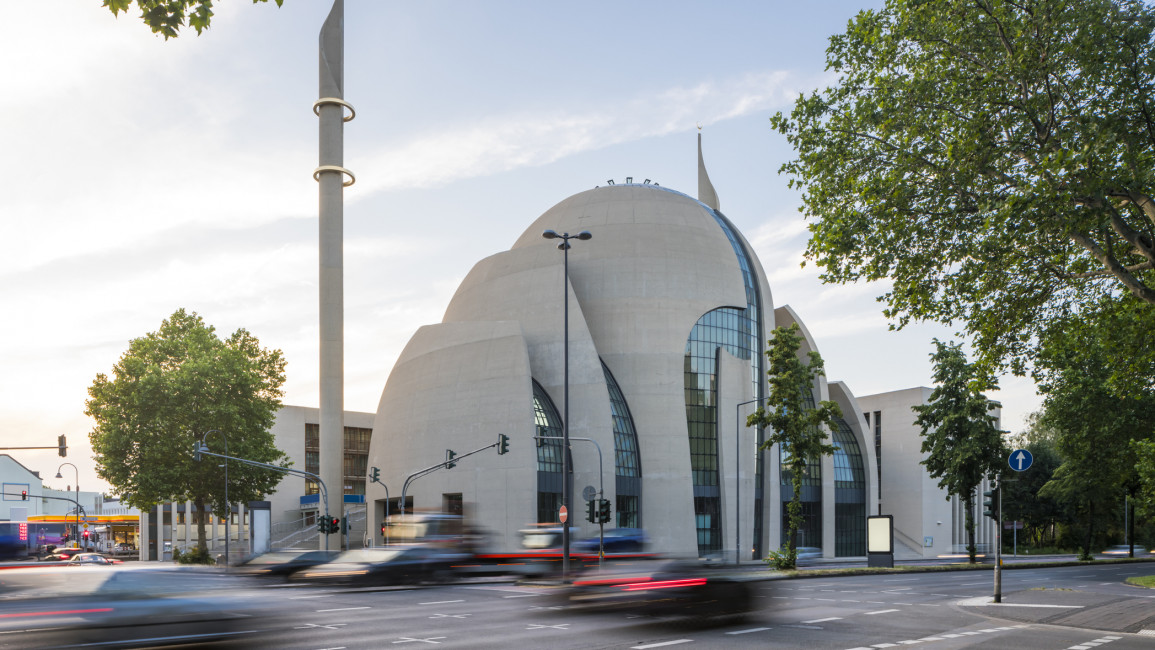Germany's Cologne to allow public Muslim call to prayer in two-year pilot scheme
Municipal authorities in the western German city of Cologne have announced that the Muslim call to prayer will be allowed to be recited on loudspeakers on Fridays, when Muslims hold weekly congregational prayers.
The public call to prayer, known in Arabic as the azan, will happen under a two-year pilot project.
Cologne Mayor Henriette Reker said that the decision came in response to requests, calling it "a sign of mutual acceptance of religion”, according to Anadolu.
"Our Muslim citizens are an integral part of our city. Hearing the call to prayer alongside church bells in our city shows that diversity is valued in Cologne and that diversity is experienced here," the mayor said.
Under the pilot scheme's rules, the azan must last no longer than 10 minutes and the volume must be monitored, with each mosque assigning an individual to receive queries from the public and log complaints.
Cologne is the largest state in Germany's North-Rhine Westphalia region and is the country's fourth most-populous city. The city is home to a large number of Turkish first and second generation immigrants, with official censuses from 2017 and 2018 numbering the community at close to 55,000.
The Muslim call to prayer has often been the target of anti-Muslim political rhetoric, as is often seen with other symbols of Muslim identity, like the hijab and niqab.
Last year, a court in the German city of Münster reversed a ban on a local mosque's call to prayer, which had come into force after a complaint from a local Christian couple.
The court ruled that the call did not infringe on the couple's rights.
"Every society must accept that one will sometimes be aware that others exercise their faith," presiding judge Annette Kleinschnittger said at the time.



